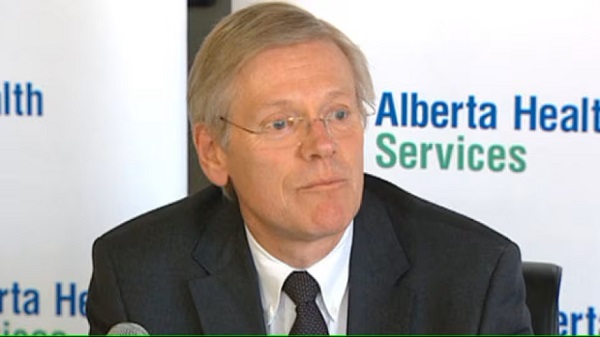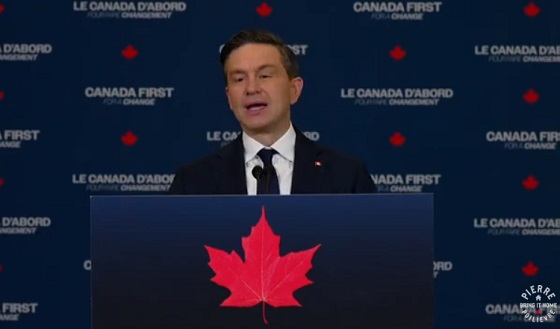Alberta
Former AHS head, Dr. Chris Eagle will lead Acute Care Alberta

Refocusing acute care leadership for the future
Alberta’s government is bringing in the expertise and experience needed to continue refocusing the health care system for the benefit of all Albertans.
Alberta’s government is committed to refocusing the health care system so that Albertans can access the health care services they need when and where they need them. The work to transform the system is making significant progress, particularly with the recent launch of Primary Care Alberta in November 2024, and the continued advancement in establishing Alberta’s new acute care provincial health agency.
Acute care, which includes hospitals, emergency services and surgery care, is a significant part of the health care system, providing critical care to Albertans when they need it most. Acute Care Alberta, the new acute care provincial health agency, will work to speed up access to high-quality care, reduce wait times and make sure the patient’s journey through the system is efficient and effective across the province.
As progress is made to establish Acute Care Alberta, Alberta’s government is appointing Dr. Chris Eagle as chair and interim president and CEO. This appointment will take effect Feb. 1 to coincide with the establishment of Acute Care Alberta as a legal entity. Dr. Eagle’s focus will be on preparing the organization for its first day of operations later this spring. His appointment to the position is pending finalization of his contract.
Dr. Eagle has significant experience supporting and leading health care organizations and projects across Alberta, including his time as president and CEO of Alberta Health Services (AHS) from 2010 to 2013. His extensive experience in the health field will allow him to guide the work to operationalize Acute Care Alberta.
To help support Dr. Eagle’s work and to lead AHS through its transition from a regional health authority to a hospital-based service provider, Andre Tremblay, deputy minister of Alberta Health, has been appointed interim president and CEO of AHS.
“Acute care is the most complex part of the health care system, and it’s critical that we have the right leadership in place to see this work through and make positive changes to the health care system for Albertans now and into the future. I want to extend my sincerest gratitude to Athana Mentzelopoulos for the work she has done during her time leading Alberta Health Services.”
Tremblay brings a wealth of public service and health care delivery experience to the position. With more than 20 years of public sector leadership, he has served in several senior leadership positions. Prior to joining Health in June 2023, Tremblay has been deputy minister at Education, Agriculture and Forestry, and Transportation. This is also his second leadership role at Alberta Health, having previously served as an associate deputy minister. He was also previously appointed as the deputy clerk of executive council and deputy secretary to cabinet. In his role as interim president and CEO, Tremblay will not receive a salary. His salary as deputy minister will remain the same.
Tremblay will continue as deputy minister through this critical period of transition and change for Alberta’s health care system. He will also oversee the recruitment of a permanent president and CEO for Acute Care Alberta. He is best positioned to continue leading efforts to refocus the health care system while supporting the transition of Alberta Health Services to an acute care service provider.
While in the interim role, Tremblay will work with AHS leadership to oversee operations, support staff transitions to Primary Care Alberta and establish Acute Care Alberta as a legal entity ahead of its operationalization this spring. Throughout this work, Albertans will continue to access acute care services as they always have and there will be no impact to front-line health care workers.
The AHS board of directors will begin the search for a permanent president and CEO immediately, and more details will be provided once the hiring process is complete.
“I am excited to take on this role and support the efforts to refocus Alberta’s health care system and to create an improved acute care system that will make sure Albertans have access to the best health care services they need, no matter where they live in the province.”
“We are at a critical time in the work that is underway to refocus the health care system. I am confident we can continue to make great strides to achieve the goal of making health care better for everyone in Alberta. I want to thank Athana Mentzelopoulos for her hard work, commitment and leadership during her time in the role.”
“We have made great progress refocusing the health care system and I am eager to take on this new role and support the work being done to improve health care across the province. I look forward to leading AHS as it transitions to a service delivery provider and engaging with front-line workers and staff across the system in the coming months.”
Alberta
Made in Alberta! Province makes it easier to support local products with Buy Local program

Show your Alberta side. Buy Local. |
When the going gets tough, Albertans stick together. That’s why Alberta’s government is launching a new campaign to benefit hard-working Albertans.
Global uncertainty is threatening the livelihoods of hard-working Alberta farmers, ranchers, processors and their families. The ‘Buy Local’ campaign, recently launched by Alberta’s government, encourages consumers to eat, drink and buy local to show our unified support for the province’s agriculture and food industry.
The government’s ‘Buy Local’ campaign encourages consumers to buy products from Alberta’s hard-working farmers, ranchers and food processors that produce safe, nutritious food for Albertans, Canadians and the world.
“It’s time to let these hard-working Albertans know we have their back. Now, more than ever, we need to shop local and buy made-in-Alberta products. The next time you are grocery shopping or go out for dinner or a drink with your friends or family, support local to demonstrate your Alberta pride. We are pleased tariffs don’t impact the ag industry right now and will keep advocating for our ag industry.”
Alberta’s government supports consumer choice. We are providing tools to help folks easily identify Alberta- and Canadian-made foods and products. Choosing local products keeps Albertans’ hard-earned dollars in our province. Whether it is farm-fresh vegetables, potatoes, honey, craft beer, frozen food or our world-renowned beef, Alberta has an abundance of fresh foods produced right on our doorstep.
Quick facts
- This summer, Albertans can support local at more than 150 farmers’ markets across the province and meet the folks who make, bake and grow our food.
- In March 2023, the Alberta government launched the ‘Made in Alberta’ voluntary food and beverage labelling program to support local agriculture and food sectors.
- Through direct connections with processors, the program has created the momentum to continue expanding consumer awareness about the ‘Made in Alberta’ label to help shoppers quickly identify foods and beverages produced in our province.
- Made in Alberta product catalogue website
Related information
Alberta
Province to expand services provided by Alberta Sheriffs: New policing option for municipalities

Expanding municipal police service options |
Proposed amendments would help ensure Alberta’s evolving public safety needs are met while also giving municipalities more options for local policing.
As first announced with the introduction of the Public Safety Statutes Amendment Act, 2024, Alberta’s government is considering creating a new independent agency police service to assume the police-like duties currently performed by Alberta Sheriffs. If passed, Bill 49 would lay additional groundwork for the new police service.
Proposed amendments to the Police Act recognize the unique challenges faced by different communities and seek to empower local governments to adopt strategies that effectively respond to their specific safety concerns, enhancing overall public safety across the province.
If passed, Bill 49 would specify that the new agency would be a Crown corporation with an independent board of directors to oversee its day-to-day operations. The new agency would be operationally independent from the government, consistent with all police services in Alberta. Unlike the Alberta Sheriffs, officers in the new police service would be directly employed by the police service rather than by the government.
“With this bill, we are taking the necessary steps to address the unique public safety concerns in communities across Alberta. As we work towards creating an independent agency police service, we are providing an essential component of Alberta’s police framework for years to come. Our aim is for the new agency is to ensure that Albertans are safe in their communities and receive the best possible service when they need it most.”
Additional amendments would allow municipalities to select the new agency as their local police service once it becomes fully operational and the necessary standards, capacity and frameworks are in place. Alberta’s government is committed to ensuring the new agency works collaboratively with all police services to meet the province’s evolving public safety needs and improve law enforcement response times, particularly in rural communities. While the RCMP would remain the official provincial police service, municipalities would have a new option for their local policing needs.
Once established, the agency would strengthen Alberta’s existing policing model and complement the province’s current police services, which include the RCMP, Indigenous police services and municipal police. It would help fill gaps and ensure law enforcement resources are deployed efficiently across the province.
Related information
-

 Autism2 days ago
Autism2 days agoRFK Jr. Exposes a Chilling New Autism Reality
-

 COVID-192 days ago
COVID-192 days agoCanadian student denied religious exemption for COVID jab takes tech school to court
-

 International2 days ago
International2 days agoUK Supreme Court rules ‘woman’ means biological female
-

 2025 Federal Election2 days ago
2025 Federal Election2 days agoNeil Young + Carney / Freedom Bros
-

 Health2 days ago
Health2 days agoWHO member states agree on draft of ‘pandemic treaty’ that could be adopted in May
-

 2025 Federal Election1 day ago
2025 Federal Election1 day agoTucker Carlson Interviews Maxime Bernier: Trump’s Tariffs, Mass Immigration, and the Oncoming Canadian Revolution
-

 Business1 day ago
Business1 day agoDOGE Is Ending The ‘Eternal Life’ Of Government
-

 espionage1 day ago
espionage1 day agoEx-NYPD Cop Jailed in Beijing’s Transnational Repatriation Plot, Canada Remains Soft Target






